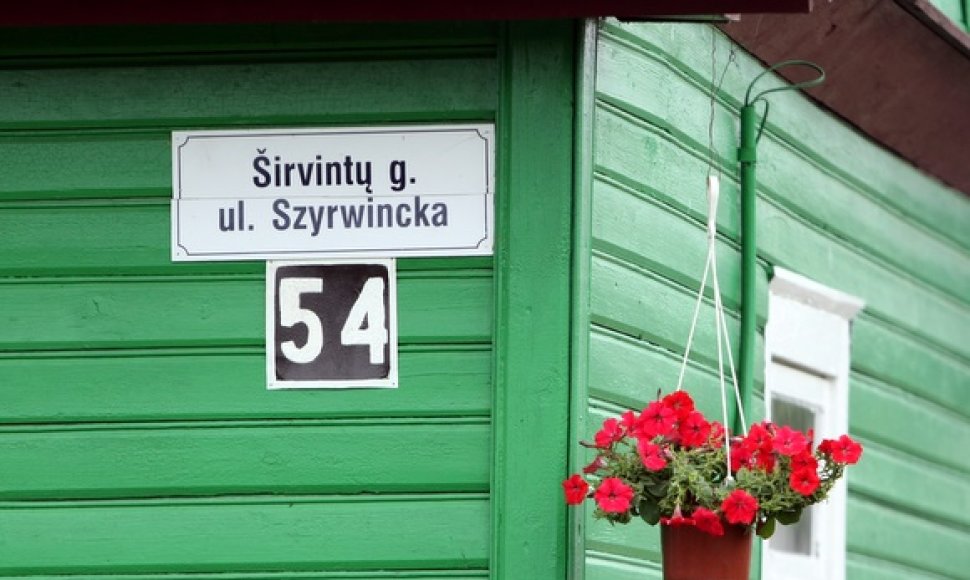"Within two weeks, the draft Law on National Minorities will be discussed at the Strategic Committee and the shape it will proceed to the Seimas will be clear then," the prime minister said in his presentation of the tasks for the fall session, which the parliament opened on Tuesday.
Liberal MP Petras Auštrevičius asked the PM to specify reasons behind his negative stance on bilingual location and street names. Butkevičius replied he would comment on the situation "according to the laws of the Republic of Lithuania and court rulings.”
"We live in a legal and democratic state, and I will comment in a way that the laws tell me to," he said.
In an interview to BNS, the prime minister has said Lithuania should not allow bilingual signs of street and location names. "It is my belief that we should understand that we're all citizens of Lithuania. All citizens of Lithuania should enjoy equal conditions. This means that there should be no signs containing names in two languages, if we respect our country, our Constitution and laws of our country," said Butkevičius.
Public signs in both Lithuanian and Polish is an objective of the Electoral Action of Poles in Lithuania, a partner in the coalition with the Social Democrats. Currently, some houses in Vilnius and Šalčininkai districts with large Polish communities have put up bilingual street signs. The move was deemed illegal and houses have been ordered to remove the plates.
The program of the Butkevičius-led government includes a commitment to draft the Law on National Minorities and settle the street and location sign issue in the light of the Council of Europe's Framework Convention for the Protection of National Minorities.
According to the convention, "in areas traditionally inhabited by substantial numbers of persons belonging to a national minority, the parties shall endeavor, in the framework of their legal system, including, where appropriate, agreements with other states, and taking into account their specific conditions, to display traditional local names, street names and other topographical indications intended for the public also in the minority language when there is a sufficient demand for such indications."












